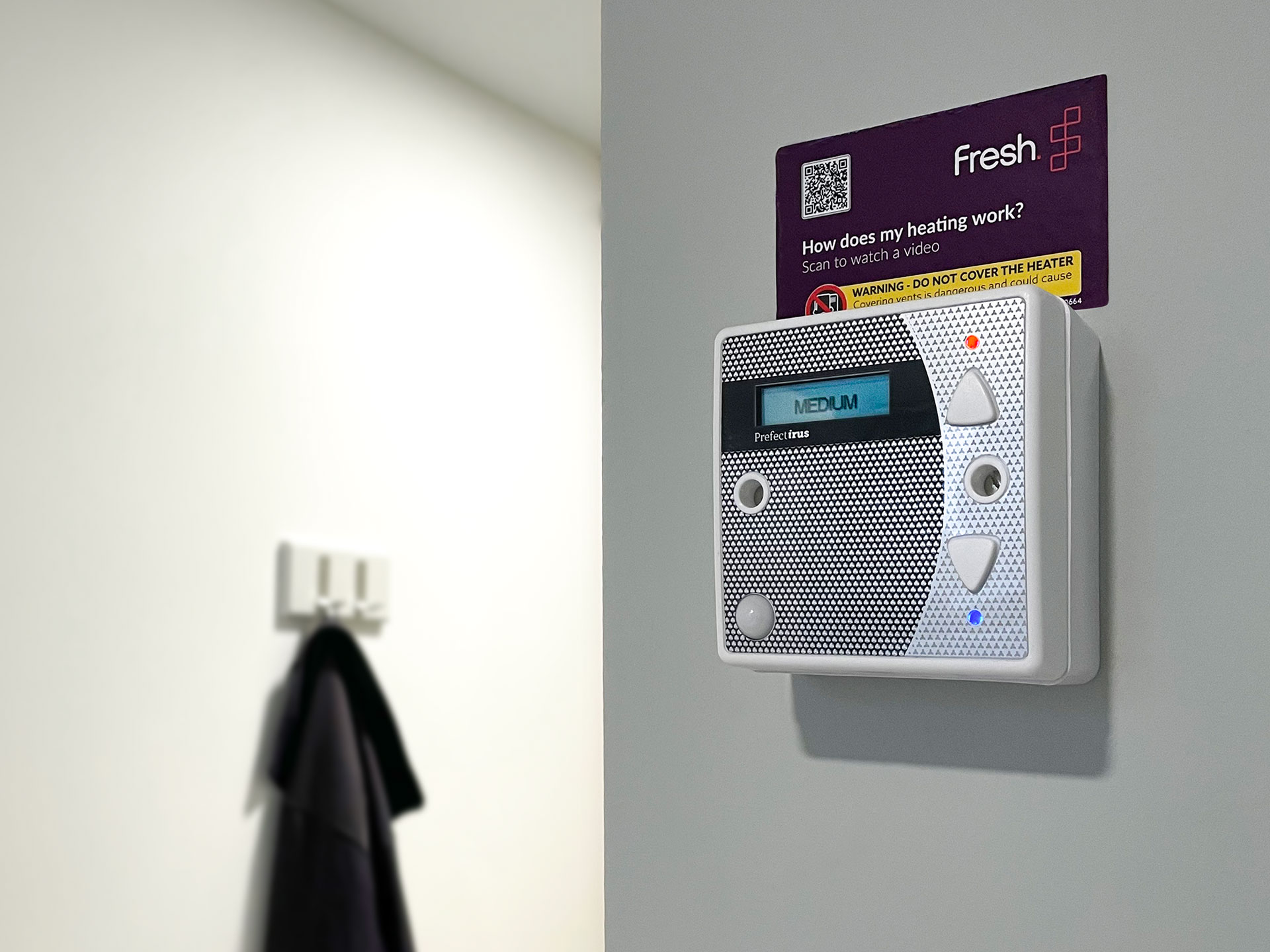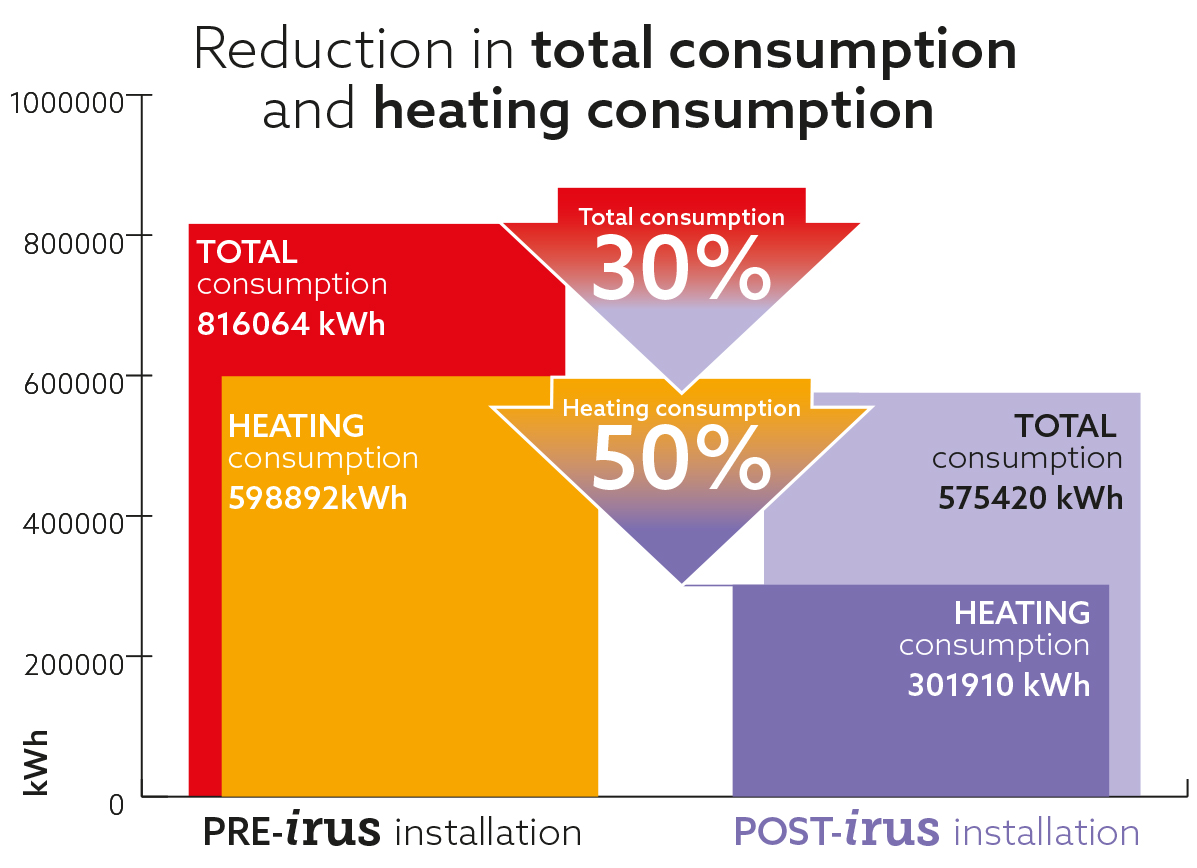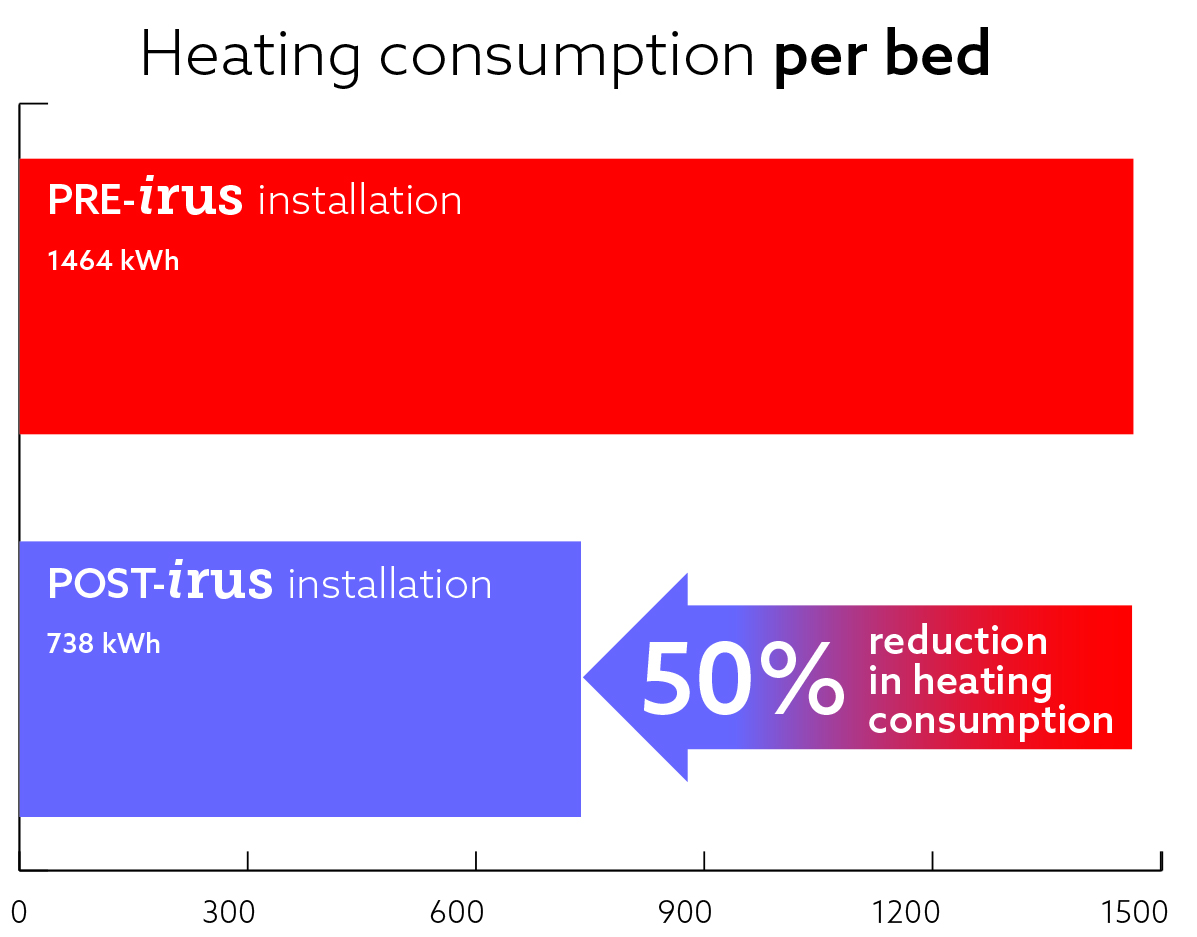
The Refinery is a purpose-built student accommodation development in Leeds. It opened in 2021. A combination of studio and bedroom cluster flats accommodate 407 residents. Fresh Student Living manages the scheme on behalf of specialist investment company Curlew Capital.
Kristian Mills, Director of Asset Management at Curlew Capital is responsible for the mobilisation of properties and ensuring they are operated effectively.
He explains, “Over the first two of years of operation we found that we were spending more on utilities than we had expected for a property of this size. Students were able to override the programming on the heaters, turning them up to maximum and leaving them running continuously. To exacerbate the high use of electricity, windows would be opened and closed to regulate temperature. We were witnessing huge wastage. Costly in monetary terms, but as a company fully committed to its 2030 net-zero targets we needed to seriously consider this impact. One of the big things we identified, within our capability, is the control of energy for heating”.
Kristian sought to reduce this, “There were several solutions where sensors are placed in the bedrooms. They provide information on humidity, CO2, light etc. and had PIRs so you could monitor occupancy. But there weren’t many that controlled what was going on in individual rooms. I’ve been in student accommodation 20 years and have come across many heater panels with boosted control functions. I’d never come across anything where you can centrally control the heating system.”

Kristian discovered Prefect Controls. They were confident that Irus could sort the problem and return results promptly.
Irus is Prefect’s Building Energy Management System developed specifically for student accommodation. Control units in each room monitor conditions, and switch heaters on and off. The control units communicate with a central hub connected to the web based Irus Portal. Managers monitor and control individual rooms remotely.
Irus doesn’t restrict heating. It avoids unnecessary energy consumption: reducing heat input when rooms are unoccupied; windows are opened; and when occupants leave a room that’s in Boost state.
“There were three distinct factors that decided the deployment of Irus”, Kristian continues, “The availability of data on bedroom usage; Lowering of energy costs; and reduction of our carbon footprint.”
The first year’s performance is impressive.
The Head of Energy and Sustainability at Prefect has analysed the data. Gareth Chaplin explains, “Although first year figures are impressive, I can see potential for even greater savings. As operators familiarise themselves with Irus, there are tweaks to settings and profiles that will maximise performance.”
Kristian is clear about residents’ comfort, “It’s important to emphasise there is no restriction in the provision of heating for our guests. If residents need more warmth, managers can increase temperature, and lengthen boost times etc. It’s essential that residents are comfortable. But to run an efficient property and avoid waste, we must be able to monitor energy input and control delivery.”
He continues, “Going forward, we want to make Irus the standard specification for each property. We don’t want to have to retrofit heating systems, just make sure that the best possible system is installed, one that provides most information and control.
He concludes, “To see 50% reduction in heating load and close to £70,000 saved is phenomenal! We anticipate a return on investment of just over 3 years. These results highlight just how effective Irus has been.”

